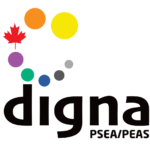Meet Digna
About Digna
- Mission, Goals and Approach
- Digna Offers
- Digna's History
-
 Why Digna?
Why Digna?
Cooperation Canada hosts Digna, the Canadian Centre of expertise on the Prevention of Sexual Exploitation and Abuse (PSEA), funded by Global Affairs Canada.
Mission
Digna aims to contribute to organizational culture change within the Canadian international cooperation community by providing training, online resources and consultation services for the adoption of gender-responsive best practices with the ultimate goal of preventing sexual exploitation and abuse in operations and partnerships, particularly of women and girls.
Goal
Our goal is to help Canadian international development and humanitarian organizations improve their ability to PSEA, including towards their program participants -particularly women and girls. We aim to increase awareness of, access to, and use of gender-responsive policies and good practices to PSEA.
We encourage and want to support organizations of the sector to commit to PSEA, including through the Cooperation Canada Leaders’ Pledge on Preventing and Addressing Sexual Misconduct, adherence to international guidelines and ongoing efforts to adopt good practices that inform policies, procedures and partnerships.
Approach
Digna adopts a feminist approach to PSEA training, resources and support are informed by inclusive, intersectional, human-rights based approaches that promote gender equality and aim to improve our collective ability to recognize and tackle power imbalances. Digna values collective co-construction. The Centre delivers on its mandate through feminist partnerships with members of the international development and humanitarian sector, women’s rights organizations, survivors and others.
Resources
Digna’s website offers access to diverse materials to support the prevention of sexual exploitation and abuse (PSEA) in the international development and humanitarian sector. These include:
- Documents and resources produced by Digna and others
- Database of PSEA resources including:
- Service providers and experts
Learning opportunities
Digna offers virtual and in-person training opportunities to Canadian organizations. These include webinars, online training and in the future, e-learning courses.
In-person opportunities include capacity development workshops and Digna’s annual national conference (which Digna plans to resume once possible in light of the COVID-19 pandemic).
Digna will use alternative approaches, including train the trainer methods and a robust online learning platform, to ensure our capacity building resources and products can be accessible equally to everyone.
Community
Digna actively promotes Cooperation Canada Leaders’ Pledge on Preventing and Addressing Sexual Misconduct as part of the sector’s commitment to PSEA. Signatories are showcased on Digna’s website.
Digna continues to compile information on PSEA focal points in Canada’s international development and humanitarian sector. It plans to make this information publicly available through its database and also provides opportunities for peer learning, information sharing and collective action among PSEA focal points. Are you a PSEA focal point for your organization?
Digna will roll out a series of Communities of Practice related to different aspects of PSEA in 2021. Digna’s Communities of Practice are groups of people who share common values and concerns on PSEA and who come together to fulfill both individual and group goals. They aim to share their expertise and best practices to contribute to PSEA in the international cooperation sector. They interact on an ongoing basis, on face-to-face meetings as well as web-based collaborative environments, to communicate, connect and conduct community activities.
Digna is supporting several communities of practice related to PSEA in international cooperation. Over 80 organizational focal points have been identified, and work has been done to engage and connect Executive Directors. In the coming months, Digna will be launching an online portal through this website, providing confidential discussion and networking tools for registered users.
Finally, Digna plays an important role in connecting Canadian organizations with global expertise and initiatives. This includes facilitating learning opportunities with and by global partners and connecting Canadian organizations to international experts where possible.
Survivor Support
Digna is not a survivor support centre, and cannot offer intervention, legal advice, or serve as a reporting agency on behalf of survivors. However, our mandate includes examining the feasibility of establishing support services in the future. In addition, Digna has and will continue to produce resources that provide information on support services to both survivors and Canadian organizations. In addition, a list of identified Canadian resources and professionals that can offer support services will be published on this site in the coming months. If you are an individual who can offer these services and wish to be added to the database, please contact us.
We encourage anyone who has experienced or knows of sexual exploitation or abuse in the programming of a Canadian organization to report it through the reporting protocols of that organization.
In April of 2018, Cooperation Canada invited representatives of its diverse membership to form a Steering Committee on the Prevention of and Response to Sexual Misconduct. In its first meetings, the Steering Committee defined its mandate to include supporting the broader development and humanitarian sector in the identification and implementation of best practices and the securing of resources to maintain this work.
In the following months, the Steering Committee authored the “Leaders Pledge” and secured the commitment of more than 100 organizational CEOs to promoting cultures of PSEA within their organizations. It also strengthened connections between the civil society organizations represented by Cooperation Canada and the working group on preventing sexual exploitation within Global Affairs Canada.
In the spring of 2019, Cooperation Canada submitted a proposal to Global Affairs Canada, on behalf of and in collaboration with the Steering Committee, to partner in developing a resource centre to facilitate PSEA coordination across the sector. With the support of Global Affairs Canada, in the fall of 2019, Cooperation Canada started developing Digna.
The word “Digna” is Latin for “worthy.” Digna supports the Canadian international development and humanitarian sector to be worthy of the trust placed in them by Canadian citizens, by our Government and by millions of beneficiaries of Canadian official development assistance around the world.

Our logo represents the diversity there is in the Canadian international development and humanitarian sector. You will notice circles in different sizes and colours. They are all grouped in a wider circle to evoke movement and synergy. There is a space left open – a placeholder for those still to join – an opening to influence beyond our nation and sector, and an acknowledgement that the work is never complete.
Our team
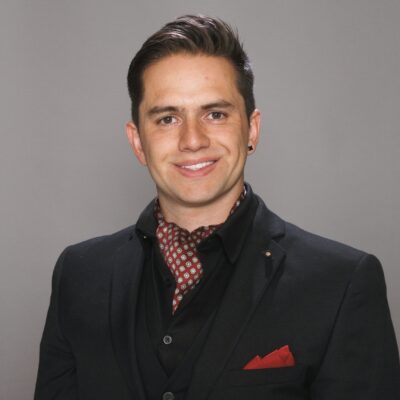
Emmanuel Julio Galleguillos-Côté
program officer
Emmanuel is an international development professional, blending a solid foundation in research, programming, and communications. Holding a BA in International Relations with a minor in Latin American Studies from the University of Calgary, and an MA in International Development and Globalization from the University of Ottawa, Emmanuel’s academic prowess is complemented by his diverse professional journey.
Having initially started as a software developer after graduating from the Southern Alberta Institute of Technology, Emmanuel seamlessly transitioned into the development sector. His journey with Digna began through a community service learning program, where he showcased the ability to apply his multifaceted skill set to successfully drive the implementation of various projects. One notable accomplishment includes Emmanuel’s pivotal role in overseeing the creation and maintenance of Digna’s Directory of PSEAH Service Providers.
Emmanuel has significantly contributed to research and analysis within the sector, specifically focusing on PSEAH. His commitment to professional growth and excellence is evident as he embarks on the role of Program Officer under the guidance of Shannon Kindornay, COO of Cooperation Canada. From the outset, Emmanuel has demonstrated a keen ability to leverage his existing strengths while simultaneously embracing opportunities for continuous learning and growth in the field.
As Emmanuel assumes his new responsibilities, we anticipate a wealth of accomplishments and collaborative successes. While he dedicates himself to the Digna program, we encourage you to connect with him. Reach out via the provided email link or use the Doodle link to schedule a 15-minute coffee break so he can learn more about you.
Digna's Advisory Committee
The Digna Advisory Committee meets on a quarterly basis to provide support and advice to staff and coordinate the efforts of Digna Working Groups.
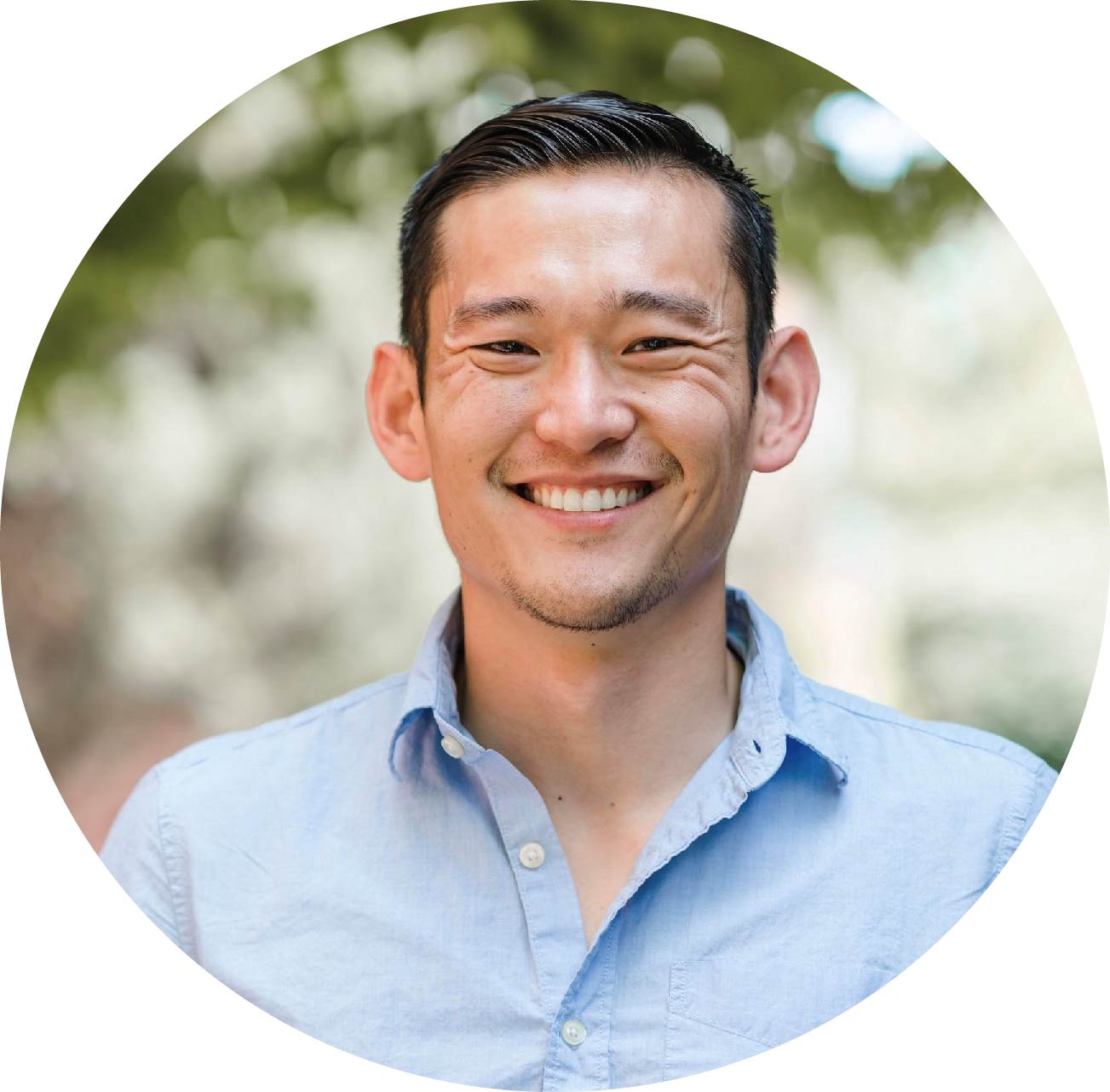
Michaël Arnaud
Michaël comes from the humanitarian and international development sector. Since 2020, he has held the role of Executive Director at Égides, an international francophone alliance of civil society organizations and groups supporting and promoting LGBTQI+ rights globally. He is also Action Against Hunger’s Canada former Associate Director for gender equality and gender-based violence, providing strategic and technical direction at international level for the integration of gender issues and the prevention of gender-based violence in assistance programs. Determined promoter of a people and diversity centred approach, he has continuously advocated for a better awareness of power relations, oppression and the necessity to support the voices of the most marginalized in all the organizations he has worked for. With a Master’s degree in International Humanitarian Law, he has been working for the past 10 years on gender, equality, diversity and gender-based violence in various contexts, including in Burkina Faso, Haiti, Vietnam and the Occupied Palestinian Territory. He also actively supports LGBTQI+ rights through various volunteer roles in the communities. Michael has been a member of Digna’s leadership working group since 2020.

Mounia Chadi (Co-Chair)
Mounia is a sociologist specializing in gender equality. She holds a doctorate in sociology and a master's degree in economics. She coordinated the Partenariat de lutte contre la violence faite aux femmes immigrées et racisées au Québec project within the Table de concertation des organismes au service des personnes réfugiées et immigrantes (TCRI) and has carried out two community studies on immigrant and racialized women. Mounia has designed tools for working with immigrant and racialized women who are also victims of violence and has facilitated training for the Regroupement des maisons for women victims of domestic violence (RMFVVC). She has also worked as a journalist for 20 years and a playwright-director for the past few years. Mounia received the Art and Culture Prize at the Gala for Arabic Women in Quebec for her literary and social writings about immigrant women. In her home country of Morocco, she was the founder and first president of the Democratic League for Women's Rights.

Jim Cornelius
Jim has served as the executive director of Canadian Foodgrains Bank for the past 22+ years, a partnership of 15 Canadian churches and church-based agencies working together to end global hunger. Canadian Foodgrains Bank funds humanitarian and development programs being implemented through their member agencies and over 100 partners around the world. The Foodgrains Bank has been wrestling with how best to prevent and address sexual exploitation and abuse when working through a network structure.
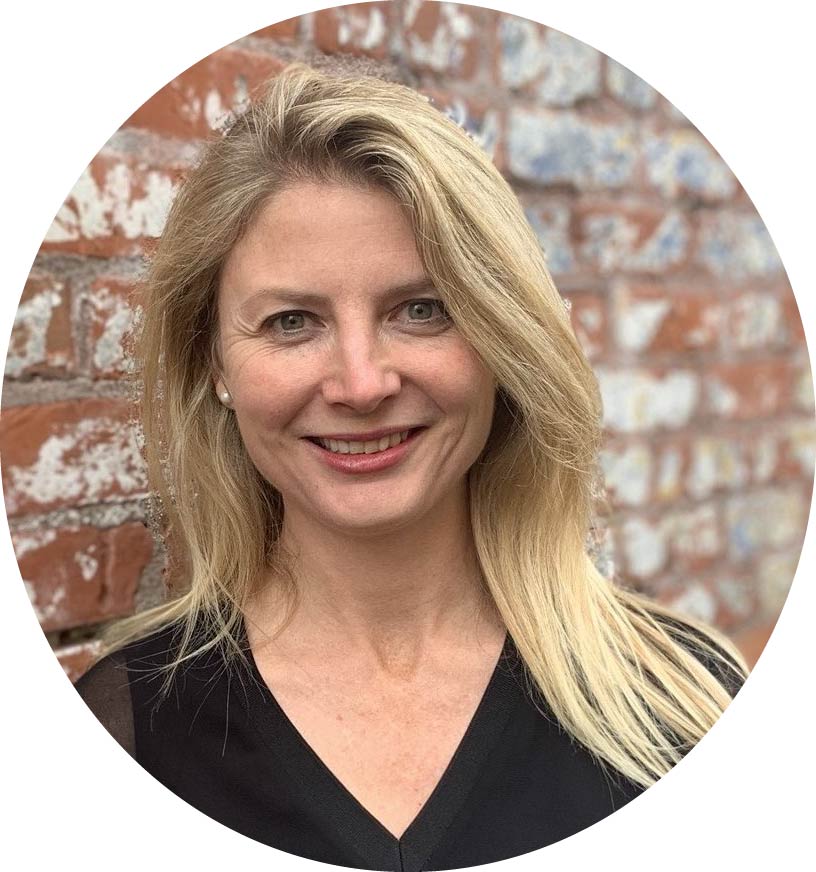
Dr. Zosa De Sas Kropiwnicki-Gruber
Zosa is the Policy Director and Gender Specialist at the British Columbia Council for International Cooperation (BCCIC). In 2007 she was awarded a doctorate in International Development Studies from the University of Oxford as a result of her ethnographic research on the sexual exploitation of adolescent girls in Southern Africa. For the past two decades, Zosa has worked for a wide range of United Nations and international non-governmental organizations and their local partners, designing, implementing and evaluating projects that seek to prevent or respond to the sexual abuse, exploitation and trafficking of children and women in South East Europe, Central Asia, West Africa and Southern Africa, and she has published extensively on these topics. Zosa was based in development, humanitarian and transitional contexts for most of her career, but is currently residing in British Columbia on the traditional, ancestral, and unceded Indigenous territories of the Musqueam and Squamish peoples. At BCCIC, Zosa has led the development and implementation of intersectional gender equality and PSEA strategies and resources, with accompanying capacity development and public engagement activities. Through advocacy, public engagement and relation-building, Zosa has contributed to the advancement of decolonial, intersectional and transformative policies and programs that target the root causes of violence, discrimination and social exclusion, while promoting the agency, inclusion and ownership of marginalized and underrepresented communities. Zosa is also an Executive Board member of Canadian Women for Women in Afghanistan (CW4WAfghan).
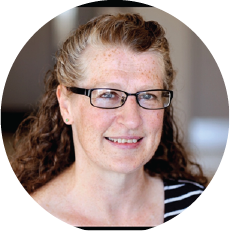
Tracey Foster
Tracey worked most recently as the Director of Human Resources with Cuso International in Ottawa. She has worked in the charitable sector for almost 30 years and has a strong understanding of the challenges, opportunities and realities of that sector. Tracey also understands the importance of comprehensive people management policies, procedures to ensure organizational effectiveness and enhance the employee/volunteer experience. She is currently supporting small and medium organizations as an independent consultant. Tracey was Co-Chair of Cooperation Canada’s Steering Committee for the Prevention of Sexual Misconduct and was active on the committee for almost 2 years. She has also served as a member on the Board of Directors for Volunteer Ottawa and as Treasurer and Vice President of the Carlington Community Health Centre. Tracey has an MA in Leadership & Training from Royal Roads University and has been a Certified Human Resources Leader for over 10 years.
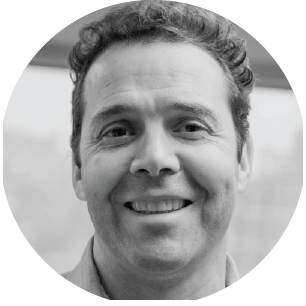
Ian Hamilton (Co-Chair)
Ian was appointed Executive Director of Equitas in January 2004. He is responsible for providing leadership in the development and implementation of Equitas’ strategic directions and overall management of the organization’s day-to-day operations. For five years prior to this appointment, Ian was Equitas’ Director of Programs and helped shape the organization’s programming. He joined the Equitas team in 1997 as a Director of the National Institutions Program, responsible for capacity building projects with national human rights commissions, particularly in Asia. Before starting with Equitas, Ian worked for the Coordinating Committee of Human Rights Organizations of Thailand for sixteen months in Bangkok, assisting their campaign for the establishment of a National Human Rights Commission. From 1992 to 1995, Ian worked in a variety of positions including Asia Program Officer at the International Centre for Human Rights and Program Officer for Democratic Development (Rights and Democracy) in Montreal. He graduated from the University of Toronto in 1990 with a Bachelor’s degree in history. In 2016, Ian was appointed to a two-year term on the Board of Directors of the Canadian Council for International Cooperation.
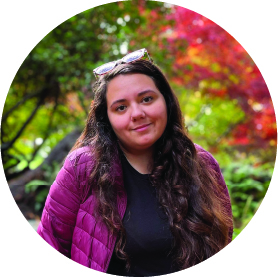
Katelynne Herchak
Kate is VIDEA’s Indigenous Governance Officer. Kate’s background is in Indigenous Family Support Work and is now completing her degree in Justice Studies at Royal Roads University. Kate is located on the traditional and unneeded territory of the Lkwungen speaking people. Kate is Inuk on her Father’s side from Kuujjuaq, QC with ties to Nunavut and Celtic & Viking on her Mother’s side. She is an alumna of UNA-Canada’s Youth As PeaceBuilder’s Forum 2017 as well as the Canadian Service Corps Program where she had the opportunity to attend COP25. Kate wears many hats outside of VIDEA, she is the Deputy Chair for the Canadian Commission for UNESCO’s Youth Advisory, a member of Pauktuutit National Inuit Women’s Youth Gender Equality Council and is the Acting President of the National Urban Inuit Youth Council. Kate is passionate decolonizing education and integrating Indigenous knowledge systems and perspectives into spaces to create meaningful relationships and change.
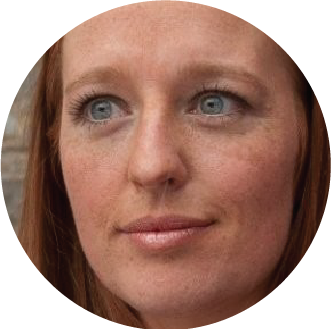
Shannon Kindornay
Shannon is the Director of the Policy and Research and Practice division at Cooperation Canada. She has worked at the research-policy nexus in international development for ten years. Prior to joining Cooperation Canada, she built a successful independent consultancy business dedicated to meeting the research and policy analysis needs of Canadian and global civil society organizations, as well as international institutions such as the Organisation for Economic Co-operation and Development. Shannon is also an Adjunct Research Professor at Carleton University’s Norman Paterson School of International Affairs and previously worked as a Senior Analyst for the Canadian International Development Platform. Shannon began her career as a researcher at the North-South Institute (NSI). During her time at NSI, Shannon led the development of the organization’s portfolio on the role of the private sector in development, managed policy-oriented research partnerships with organizations in Canada and around the world, and produced numerous reports, peer reviewed publications and commentaries on a range of policy issues. Shannon holds degrees from Carleton University and Wilfrid Laurier University.

Brianna Long
Brianna is passionate about sexual and reproductive health and rights, PSEA, and sex work advocacy, all reinforced by her studies, volunteer experience at AIDS clinics, and being a support worker in mental health housing. She is a proud member of the VIDEA team, where she works as a Gender and Diversity Program Officer. Brianna’s role at VIDEA involves revising harassment policies, integrating feminist and Indigenous methodologies into programs and activities, and writing a new policy on PSEA and sex work. She holds an undergraduate degree at Dalhousie University in Political Science and International Development Studies and is currently a master’s student at the University of Victoria. Brianna will continue her studies next year at Carleton University for her PhD in Political Science, where she will continue to tackle gender inequality and its relation to Canadian foreign policy’s role in Sub-Saharan Africa. Her specializations will be in International Relations and Gender and Diversity.
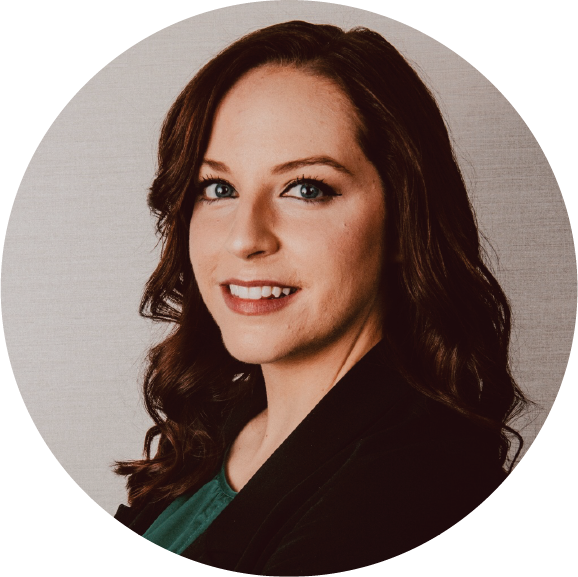
Ashley Major
Ashley is a barrister and solicitor based in Toronto, Ontario. She works as a Research Associate at the International Human Rights Program at the University of Toronto Faculty of Law, and as a Consultant with the Thinking Forward Network. She specialises in issues of criminal law and gender-based violence. Ashley articled at the Ministry of the Attorney General, Crown Law Office – Criminal. In 2019, she convocated with an Advanced LL.M in Public International Law, specialising in International Criminal Law, from the University of Leiden, the Netherlands. In addition to her work, Ashley volunteers as an advisory member for the Barbra Schlifer Clinic, the Rights of Non-Status Women's Network, and Digna.
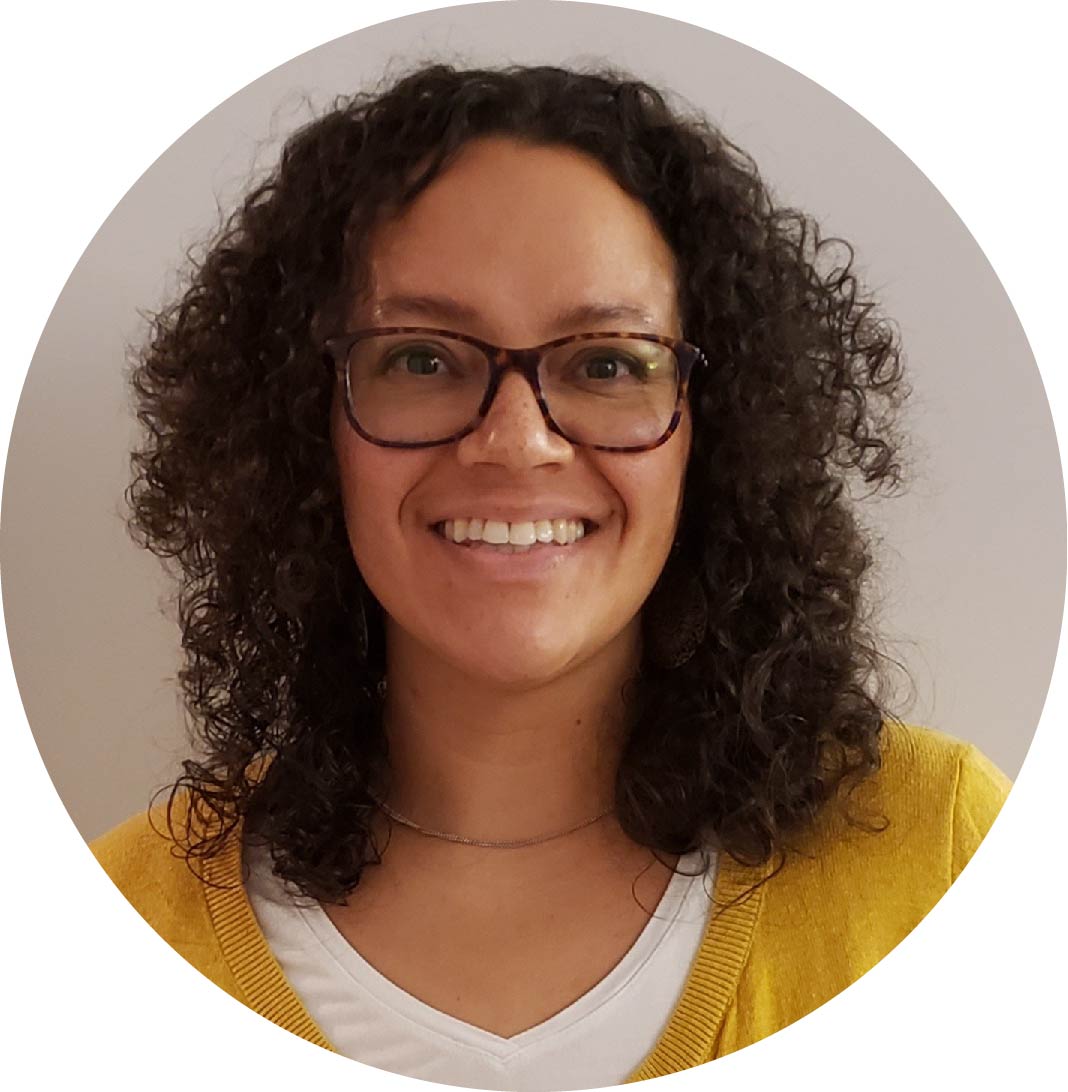
Geneviève Némouthé
Passionate about social justice and health, Geneviève brings to her practice more than fifteen years of community health/project management experience both in Canada and in Sub-Saharan Africa. She is currently working as a Women’s Rights and Gender Specialist at CARE Canada where she supports programming within the in Global Heath Unit, ensuring that projects aim to foster greater gender justice while doing no harm. As such, she aims to promote and maintain an organizational culture that advances gender equality, reduces power abuse and inequalities, and fosters trust and safety within the workplace, programming, and communities where CARE works. She is particularly keen to explore these issues as our sector needs to continue to challenge itself on decolonization and aim to build true partnerships with local actors. Before joining CARE, Geneviève spent many years in West Africa in technical assistance roles supporting partner civil society organisations in their actions towards gender justice and sexual reproductive health and rights both in development and humanitarian contexts. Community-based participatory research work in Canada and abroad has allowed her to gain demonstrated experience on social and behaviour change work and qualitative research grounded in intersectional feminist analysis. Geneviève holds an MSc in Community Health.

Rameesha Qazi
Rameesha is a community organizer and an expert gender consultant who is passionate about protecting women and girls from all forms of violence. She has worked for numerous organizations to mainstream gender equality in programming and developed case studies, policies, procedures, and MHM/SRHR manuals. In Canada she has volunteered with the Canadian Armed Forces to enhance adoption of GBA+ protocols and was a special projects consultant for GlobalMedic implementing sustainable clean water solutions for refugees in Cox’s Bazaar. She has worked as a Gender Equality advisor in the Middle East and East and West Africa, developing education programs, resources, policies, crafting gender strategies, implementing GBV prevention programs, and implementing advocacy campaigns to protect girls from FGM. She is currently the Co-Chair of Survivor Support Services Working Group & Co-chair Youth Working Group at DIGNA, - she is a key part of several projects including development of a Survivor Support resources database for all countries that receive GAC aid. Above all, she believes in empowering survivors to access resources and make decisions they feel will best support their health and wellbeing.
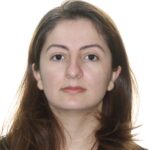
Froogh Sarwary
Froogh Sarwary is an accomplished HR and Safeguarding leader with extensive international experience driving organizational excellence through strategic planning, compliance management, and talent development. Passionate about fostering inclusive and safe environments, Froogh brings a unique perspective to their practice, informed by more than a decade of dedicated work in humanitarian and development contexts, particularly in Afghanistan.
With a proven track record of enhancing employee retention and fostering positive workplace cultures, Froogh excels in overseeing critical HR and safeguarding functions. Their expertise extends to conducting critical Safeguarding, HR, and Fraud Investigations, ensuring compliance with essential standards and quality frameworks, and managing health, safety, and security portfolios to maintain a safe work environment for all staff.
Froogh's international work experience, including oversight of PSEA (Prevention of Sexual Exploitation, Abuse, and Harassment) initiatives in Afghanistan with Save the Children and Oxfam, provides valuable country context and insight into working in diverse cultures and complex communities. Froogh is dedicated to promoting a safe and inclusive environment within organizations while advocating for social justice and equality.
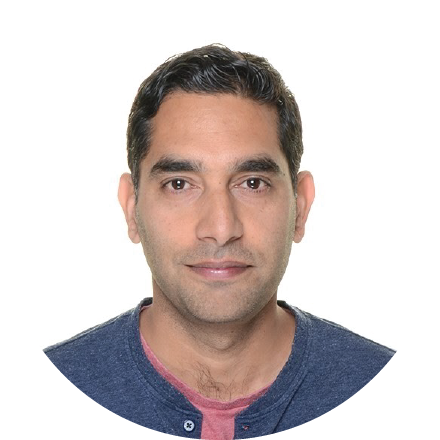
Gurvinder Singh
Gurvinder works with the Canadian Red Cross International Operations as the Senior Protection Advisor and with the International Federation of Red Cross and Red Crescent Societies (IFRC) as the Senior Child Protection Advisor.
He has worked with the Red Cross for 20 years.
As part of his role with the Canadian Red Cross he is the technical lead on the Prevention of Sexual Exploitation and Abuse. He has worked against sexual exploitation and abuse by humanitarian personnel since 2005. He led the first global review of PSEA for the IFRC, helped lead the development of the IFRC strategy against PSEA, and has helped to develop numerous policies, training tools, and monitoring methodologies.
Gurvinder is based in Surrey, British Columbia. He has a master’s degree in human security and peacebuilding from Royal Roads University. He has a BA in social geography from Simon Fraser University.
